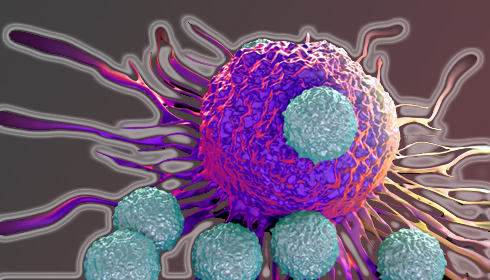
Promising Interim Data from mRNA Cancer Immunotherapy Trial Shows Hope for Advanced Cancer Patients
Interim data from the Phase I dose escalation trial of mRNA-4359, an experimental mRNA cancer immunotherapy, indicate promise for patients with advanced solid malignancies such as lung cancer and melanoma. The findings, presented at the European Society of Medical Oncology (ESMO) meeting in Barcelona, offer a promising peek into the possibilities of mRNA-based cancer therapy. The Moderna backed the trial, marking the first human study of mRNA-4359.
A total of 19 patients with advanced malignancies received one to nine doses of immunotherapy. By providing common tumour markers to the patient's immune system, the therapy aims to activate the immune system to recognise and combat cancer cells.
Dr Debashis Sarker, the trial's UK Chief Investigator and Clinical Reader in Experimental Oncology at King's College London, presented the preliminary results at ESMO. Dr. Sarker stated, "We have shown that the therapy is well tolerated with no serious side effects and can stimulate the body's immune system in a way that could help to treat cancer more effectively." However, because this trial has only included a small number of patients thus far, it is too early to determine how successful this could be for those with advanced-stage cancer."
The primary goal of the Phase I trial was to determine the safety and tolerability of the immunotherapy, while secondary and tertiary goals were to evaluate patients' immunological and radiographic responses. The findings indicate that mRNA-4359 was well tolerated, with the most prevalent side effects being weariness, injection site soreness, and fever.
The evaluation found no tumour growth in eight of the 16 individuals and no new tumours. While the sample size was modest, these findings suggest that immunotherapy has the potential to stabilise illness in some patients. Furthermore, researchers discovered that mRNA-4359 might activate the immune system, causing immune cells to preferentially target two proteins of interest: PD-L1 and IDO1. This activation increased in immune cells capable of destroying cancer cells while decreasing the number of immune cells that dampen the body's anti-tumour responses.The mRNA immunotherapy technique is part of a larger attempt to create cancer vaccines that employ genetic material to teach the immune system to combat tumours. Moderna's Senior Vice President and Head of Development, Therapeutics, and Oncology, Dr. Kyle Holen, emphasized the significance of the findings: "The Phase 1 results of mRNA-4359, which demonstrate its potential to elicit strong antigen-specific T-cell responses while maintaining a manageable safety profile, are encouraging." This innovative technique has the potential to be a critical component in altering the tumour microenvironment towards a more immune-permissive state, providing hope for patients with advanced solid tumours."
The trial will continue to enrol individuals with melanoma and lung cancer to further evaluate the therapy's efficacy, while researchers are also investigating the combination of mRNA-4359 with pembrolizumab, an immunotherapy medication, to enhance the treatment's efficacy.
Despite the positive results, researchers urge caution. Dr Sarker stated, "This study has only involved a small number of patients to date," emphasising the significance of ongoing research to assess the broader relevance of mRNA-4359. The trial's continuance will centre on fine-tuning the dosage and investigating the therapy's efficacy in a larger, more diverse patient group.
The trial is part of a larger worldwide initiative that includes the United Kingdom, the United States, Spain, and Australia. If successful, mRNA-4359 could be a game changer in cancer treatment, leading to more focused and effective medicines for patients with advanced-stage solid tumours.
The global oncology community will be closely following the results of the study, which could pave the way for future breakthroughs in cancer immunotherapy.